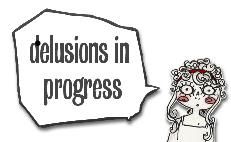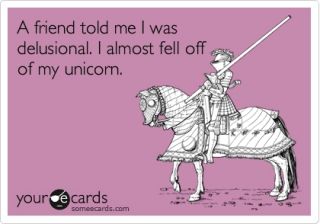Relationships
Stereotype Inaccuracy?
Extraordinary Scientific Delusions and the Blindness of Psychologists
Posted October 25, 2012

Everyone knows that stereotypes are inaccurate, especially psychologists:
"However, a great deal of the thrust of stereotyping research has been to demonstrate that these behavioral expectancies are overgeneralized and inaccurate predictors of actual behavior of the target individual (Darley & Fazio, 1980, p. 870).
"The term stereotype refers to those interpersonal beliefs and expectancies that are both widely shared and generally invalid" (Miller & Turnbull, 1986, p. 233).
"The problem is that stereotypes about groups of people are overgeneralizations and are either inaccurate or do not apply to the individual group member in question ... categorization can lead to oversimplification and distortion ... In such instances, people tend to perceive members of the other group as all alike or to expect them to be all alike, which they never are" (APA Brief, 1991, "Assigning identical characteristics to any person in a group, regardless of the actual variation among members of that group" (Aronson's, 1999 definition of stereotype, p. 307).
"... stereotypes are maladaptive forms of categories because their content does not correspond to what is going on in the environment" (Bargh & Chartrand, 1999, p. 467).
“... overgeneralized sets of beliefs about members of a particular social group” (definition of “stereotype),” Schultz & Oskamp, 2002, p. 63).
"A stereotype is any generalization about a group ... By definition, a generalization about a group is bound to be "unjustified" for some portion of the group members" (Nelson, 2002, p. 5).
(note: See Jussim, 2012, for references for all of these quotes).
Except stereotypes are not inaccurate. There are many different ways to test for the accuracy of stereotypes, because there are many different types or aspects of accuracy. However, one type is quite simple -- the correspondence of stereotype beliefs with criteria. If I believe 60% of adult women are over 5' 4" tall, and 56% voted for the Democrat in the last Presidential election, and that 35% of all adult women have college degrees, how well do my beliefs correspond to the actual probabilities? One can do this sort of thing for many different types of groups.
And lots of scientists have. And you know what they found? That stereotype accuracy -- the correspondence of stereotype beliefs with criteria -- is one of the largest relationships in all of social psychology. The correlations of stereotypes with criteria range from .4 to over .9, and average almost .8 for cultural stereotypes (the correlation of beliefs that are widely shared with criteria) and.5 for personal stereotypes (the correlation of one individual's stereotypes with criteria, averaged over lots of individuals). The average effect in social psychology is about .20. Stereotypes are more valid than most social psychological hypotheses.

Which raises a question: Why do so many psychologists emphasize stereotype inaccuracy when the evidence so clearly provides evidence of such high accuracy? Why is there this Extraordinary Scientific Delusion?
There may be many explanations, but one that fits well is the leftward lean of most psychologists. If we can self-righteously rail against other people's inaccurate stereotypes, we cast ourselves as good, decent egalitarians fighting the good fight, siding with the oppressed against their oppressors. Furthermore, as Jon Haidt has repeatedly shown, ideology blinds people to facts that are right under their noses. Liberal social scientists often have assumed stereotypes were inaccurate without bothering to test for inaccuracy, and, when the evidence has been right under their noses, they have avoided looking at it. And when something happens where they can't avoid looking at it, they have denigrated its importance. Which is, in some ways, very amusing -- if, after 100 years of proclaiming the inaccuracy of stereotypes to the world, can we really just say "Never mind, it's not that important" after the evidence comes in showing that stereotype accuracy is one of the largest relationships in all of social psychology?
References
Haidt, J. (2012). The righteous mind: Why good people are divided by politics and religion. New York: Pantheon
Jussim, L. (2012). Social perception and social reality: Why accuracy dominates bias and self-fulfilling prophecy. NY: Oxford University Press.
Richard, F. D., Bond, C. F. Jr., Stokes-Zoota, J. J. (2003). One hundred years of social psychology quantitatively described. Review of General Psychology, 7, 331-363.


